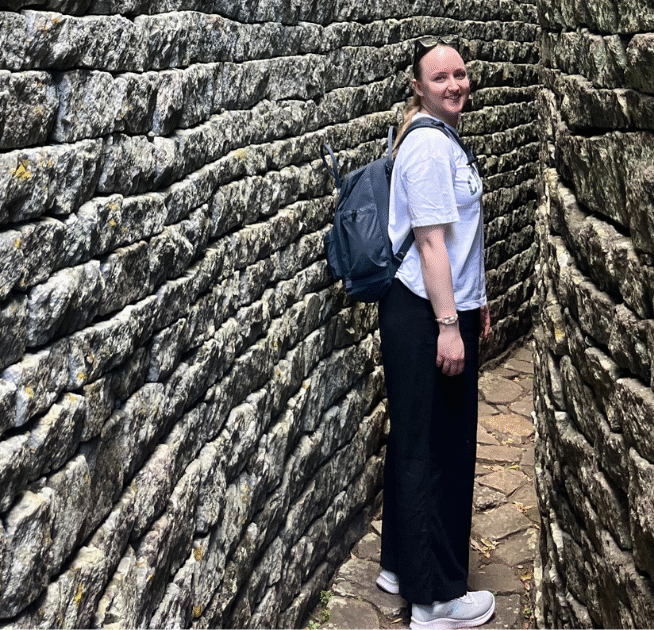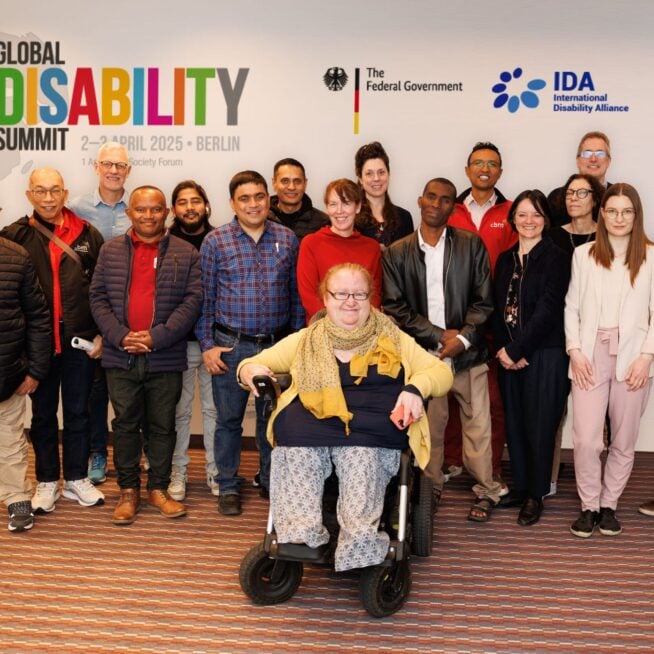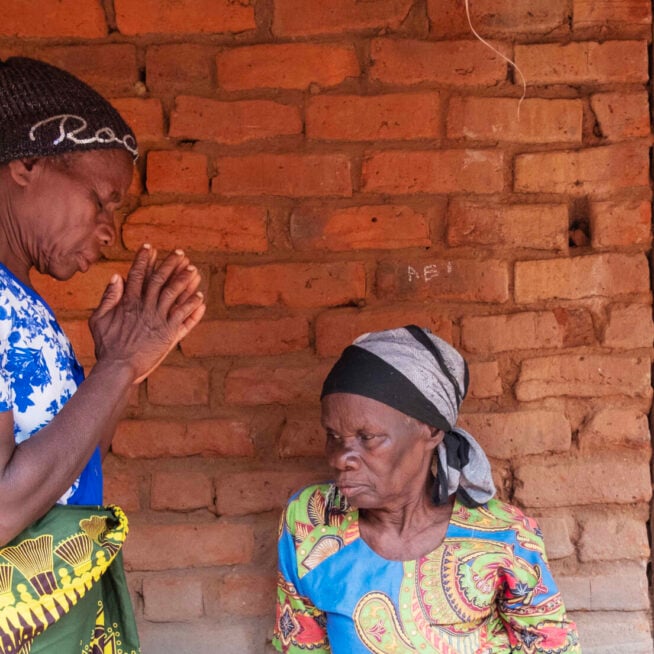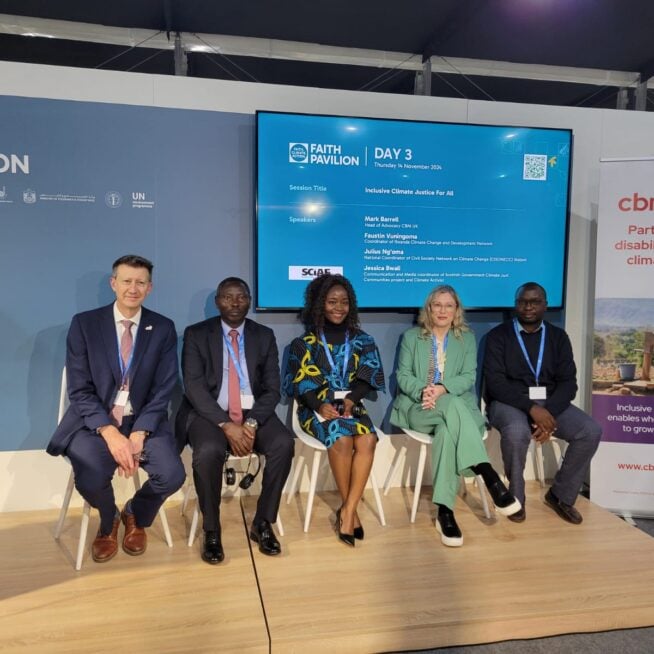Want to transform lives with us? Stay in touch and hear about our news, activities and appeals by email!
Fistula Day 2021: community champions tackle stigma in Nigeria
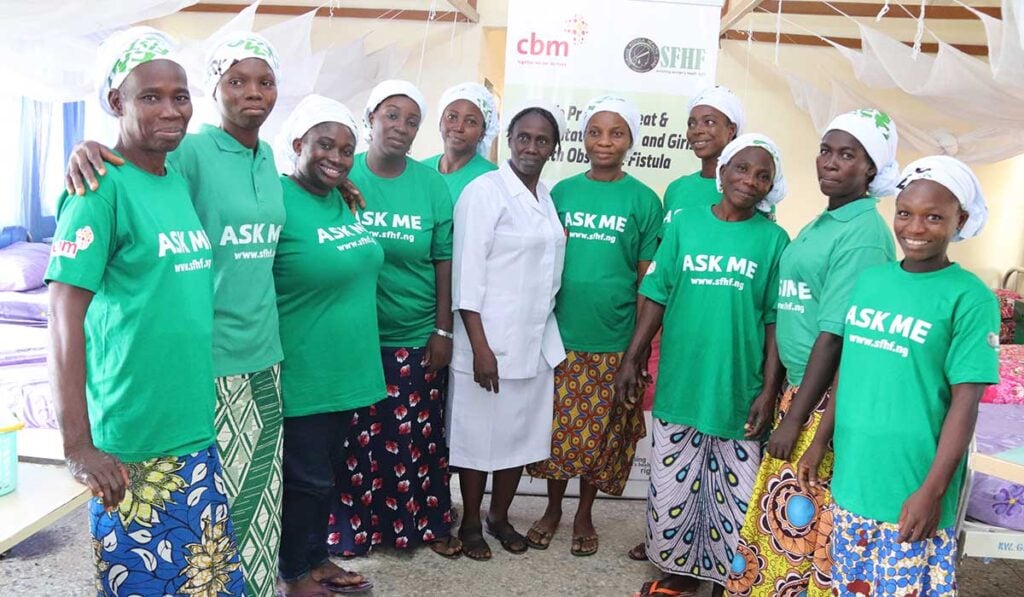
Today is International Day to End Obstetric Fistula and we’re celebrating the amazing community champions, who are drawing on their own experience of fistula to help other women and challenge stigma around this debilitating condition.
Justina, 18, lives in a remote community in Nigeria. At just 14 years old, she got married and fell pregnant. Justina endured 3 agonizing days in labour at a local health centre. Because of the poor care she was receiving there, her family took her to a private hospital instead. But heartbreakingly, her baby did not survive.
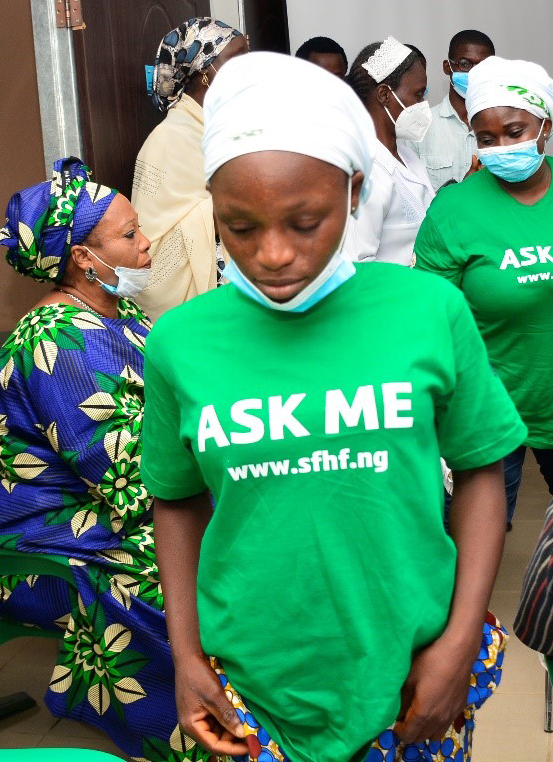
A few days later, Justina realised she was unable to control her urine. She had developed obstetric fistula – a hole or tear in the birth canal – due to her traumatic labour.
The problem persisted and Justina was shunned and discriminated against by those in her community. She was unable to continue her education and had to rely on her family for survival. She developed depression and even attempted to commit suicide.
Thankfully, Justina discovered that help was available, even though the family couldn’t afford to pay, from another woman who was scheduled for fistula surgery. She realised she was not alone. Justina was treated and is now a Community Champion, helping to raise awareness of fistula and that treatment is available.
30 years of incontinence and pain
Nigeria has one of the lowest levels of maternal and new-born health in the world, according to the Nigeria Demographic and Health Survey (NDHS). It’s estimated that 150,000 women and girls are living with fistula in the country, and around 13,000 more women develop fistula every year. The real figure may be much higher as women and girls with obstetric fistula often do not seek help. The stigma around incontinence means that many women feel ashamed and isolate themselves from others, not realising that fistula is a medical condition that can be treated.
Hauwa, 52, lived with fistula for 30 years, not knowing where to seek fistula care. She developed fistula during the delivery of her first child. Since the onset of the fistula, she had 5 other children.
After decades of living with incontinence, she was identified by a project community volunteers and invited to come for her first fistula surgery at Kwali General Hospital. The surgery was a success and Hauwa return to her work as a farmer, finally free from the discomfort of living with fistula.
Hauwa is happy to be helping other women in her community to get the support and treatment they need.
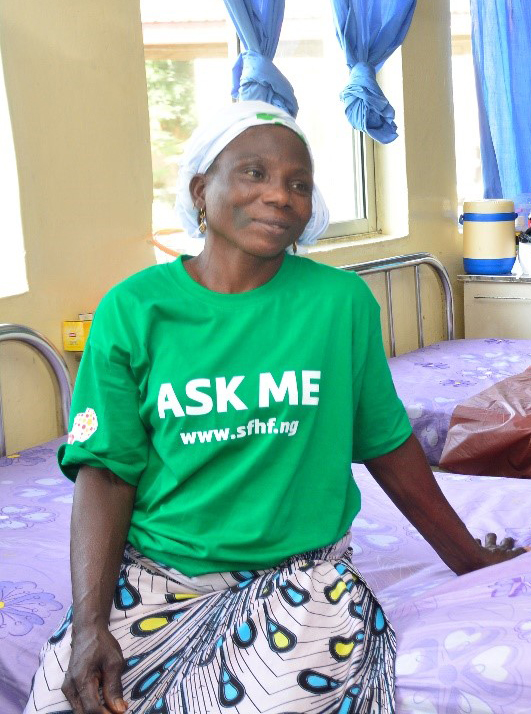
Improving access to care and treatment
CBM is working with Survive Fistula Healthcare Foundation and ECWA Vesico Vaginal Fistula Centre to improve access to quality maternal and new-born health services in Central and North-Eastern Nigeria, including preventing and treating obstetric fistula.
Jamilat is a 28-year-old mum of two and university graduate. She developed fistula around 2 years ago, after her second childbirth. During her first childbirth, she had a perineal tear which was not sutured and took time to heal. The tear worsened during her second delivery and this time she was left in severe pain and discomfort. There was a failed attempt to repair the tear in the hospital where she delivered.
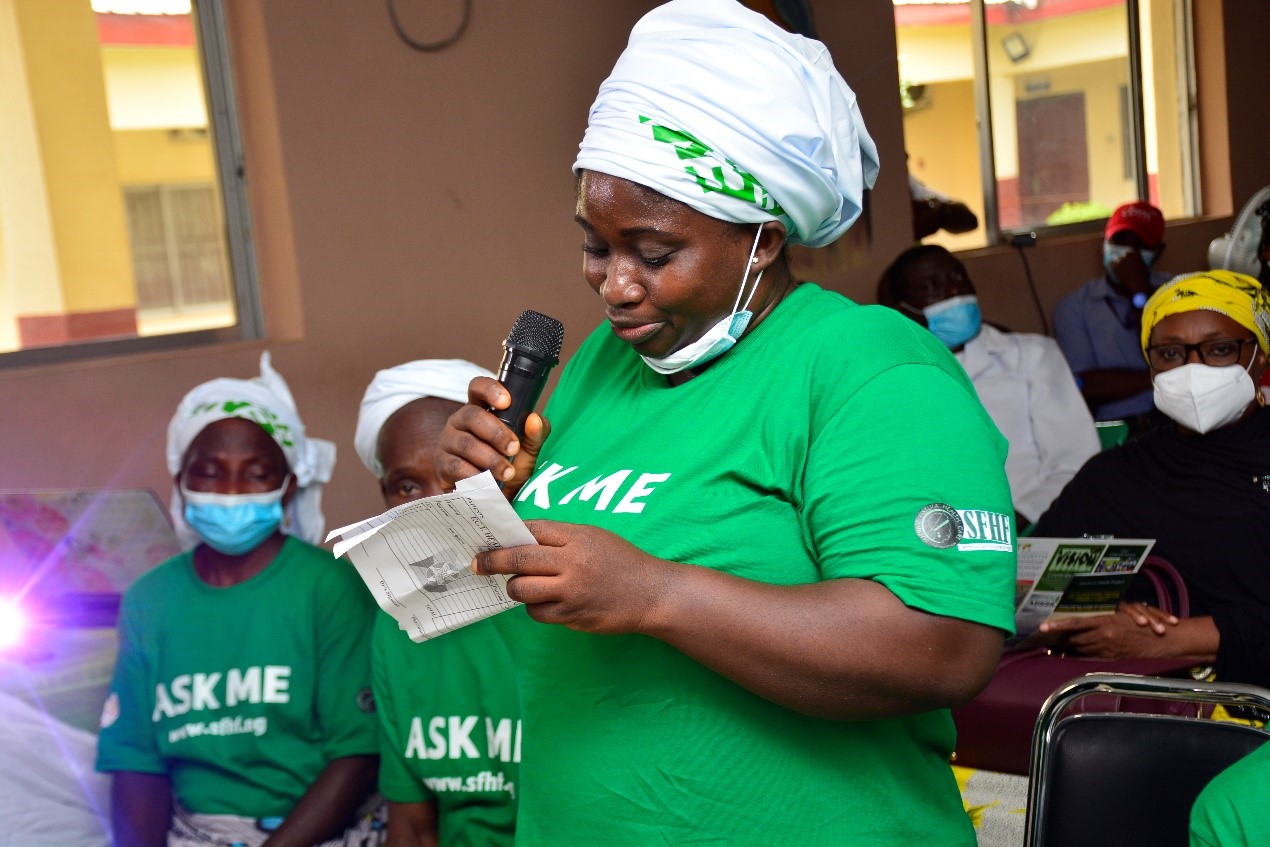
Unfortunately, she noticed involuntary passage of urine when she coughed, sneezed or laughed. She couldn’t understand what was happening. Jamilat tried to seek medical advice at several local hospitals but was told there was no solution. She continued to live with fistula for two years. Thankfully, Jamilat’s close friend heard of treatment for fistula being at CBM’s partner Kwali General Hospital, through advertising on social media, and urged her to go and get help.
Jamilat quickly got prepared and travelled to the hospital, where she had a successful surgery to repair the tear. By volunteering as a Community Champion, she is helping other women to access suitable treatment much more quickly.
As part of our work, we’re training women with lived experience of fistula to be community champions, to raise awareness about fistula – including the treatment available – and to tackle stigma and discrimination in their communities.
We’re also training health workers in Antenatal Care and Emergency Obstetric and New-born Care to improve maternal healthcare in Nigeria and end the needless suffering of thousands of women living with obstetric fistula.
Find out more about our work preventing fistula and improving maternal health in Nigeria. #EndFistula
Images: 1st – Community champions at the Survive Fistula Healthcare Foundation in Nigeria, wearing t-shirts saying ‘Ask Me’ to help raise awareness and encourage other women to seek help. 2nd – Justina (18) at the Survive Fistula Healthcare Foundation in Nigeria. 3rd – Hauwa (52) sat on a bed at the Survive Fistula Healthcare Foundation in Nigeria. 4th – Jamilat (28) speaking at an event at he Survive Fistula Healthcare Foundation in Nigeria.

